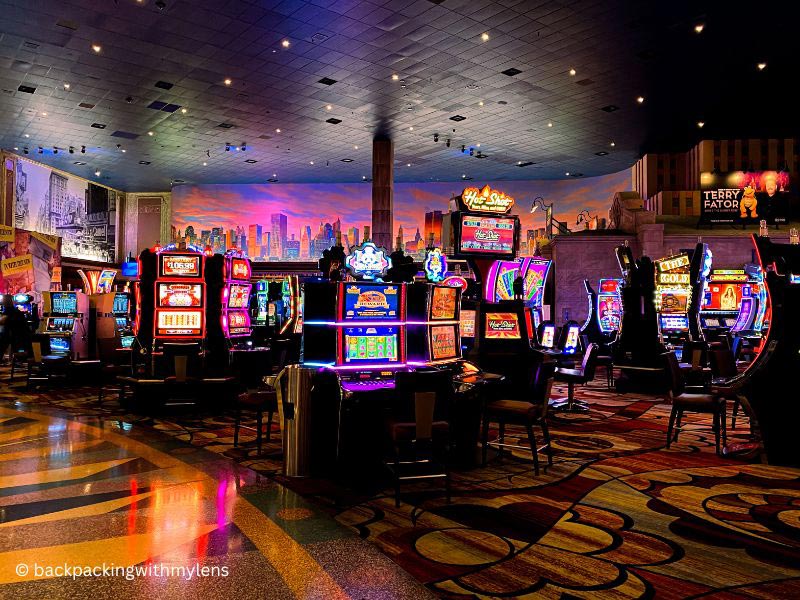
Casino games have long been a fascinating form of entertainment, drawing numerous of players from diverse cultures around the globe. From the opulent casinos of Vegas to the bustling gambling halls of the Chinese gambling capital, these games serve as a bridge that brings together people across different backgrounds. The allure of luck, strategy, and uncertainty entices not only those seeking to gamble for profit but also those looking for a feeling of belonging.
The significance of casino games extends significantly past the gaming floor. They often represent the cultural standards and beliefs of the communities in which they thrive. Games such as Texas hold ’em, blackjack, and the wheel game have woven themselves into the mosaic of cultural phenomena, influencing various aspects from cinema to fashion. As we explore this intriguing intersection of luck and culture, we can comprehend better how gambling games shape and are influenced by the environment surrounding us.
Historical Progression of Casino Activities
The roots of gambling games can be followed back to old civilizations, where gambling in multiple forms was extensively practiced. In China, around 2300 BC, a variant of lottery known as Keno was popular, while in historic Rome, soldiers would frequently wager on the consequences of their matches. The concept of using luck for entertainment and income evolved over the ages, leading to the establishment of more organized activities. By the late Middle Ages, gambling houses began to surface in the continent, notably in Italy, which presented early incarnations of famous activities still enjoyed today.
As gambling gained popularity in European regions, the 17th and 18th centuries saw the rise of gambling establishments as exclusive venues for betting. The earliest official gaming venue, the Ridotto, was established in Venice in the year 1638, featuring activities like the game of Baccarat and Faro games. This era marked a significant turning point, as casinos commenced to draw not just the wealthy but also the expanding middle-tier society. The sophistication of games grew, leading to the creation of new regulations and versions that enhanced the experience of players.
In the 19th century, the industrial revolution and changes in societal norms additionally changed the terrain of gambling games. The introduction of roulette and modern slot machines attracted a more diverse clientele, and gaming houses became seen as legitimate forms of fun. This period witnessed the globalization of gaming, as gambling houses extended from European nations to the Americas, culminating in the development of the famous Las Vegas Boulevard in the 20th century. The progress of casino activities has continued into the present day, including new technologies and online services, making them accessible to a universal market.
### Cultural Importance within Various Societies
Casino games have deep-rooted cultural and social value in a multitude of societies across the globe. In Las Vegas, the very essence of the urban landscape is woven around gaming venues, where gambling is not just a hobby but a central aspect of entertainment and social interaction. The dazzling lights and lively atmosphere attract millions, showcasing how games of chance can impact local financial landscapes and cultural uniqueness. This environment transforms the notion of recreation into an engaging event that affects fashion, sound, and even cinema.
On the other hand, some cultures view wagering with an air of caution, considering it through the lens of morality and heritage. A case in point, in various Eastern cultures, games like Mahjong and Pai Gow are full of history and possess significant social meanings. These games are often played during get-togethers and celebrations, fostering collective connections and reinforcing familial ties. The act of participating in these games goes above mere amusement, reflecting principles such as respect for elders and the significance of collective enjoyment.
Simultaneously, in Western countries such as Monaco and Italy, gambling activities serve as symbols of wealth and elegance. The stylish atmosphere of these establishments attracts both visitors and residents, upholding a sense of prestige and elitism. The art of poker and the strategic elements of games like the game of baccarat are appreciated, shaping social dynamics and creating an allure that captivates a diverse audience. This emphasizes how casino games can concurrently reflect and mold cultural attitudes towards risk, benefit, and relationship building.
Financial Influence and Tourism
Gambling activities play a significant role in the economic landscape of many areas, particularly those that depend significantly on visitor traffic. The revenue generated from gambling establishments fuels local financial systems, creating jobs not only within the casinos but also but also in related sectors such as hotel management, dining, and entertainment. This surge of tourists, drawn by the allure of gambling and the overall casino experience, stimulates expenditure across multiple businesses, contributing to the economic vitality of the region.
The presence of casinos often leads to the development of infrastructure, including lodging, public transit, and recreational facilities. These improvements are essential in improving the overall tourist experience, making destinations more appealing to visitors. Additionally, many casinos contribute in local communities through support of events and philanthropic initiatives, further integrating themselves into the social fabric of the locality. KUBET Such investment not only supports economic growth but also cultivates a positive reputation of the casino industry.
In addition, the worldwide appeal of casino games drives competitive tourism, with locations vying to attract players from around the world. Iconic locations like Las Vegas and Macau have become synonymous with casino culture, drawing millions each year. This competitive edge encourages creativity and variety within the gambling sector, influencing developments in leisure and hospitality that resonate beyond their borders. The consequences of this visitor influx extend wide, impacting local financial health and cultural exchanges on a global scale.
